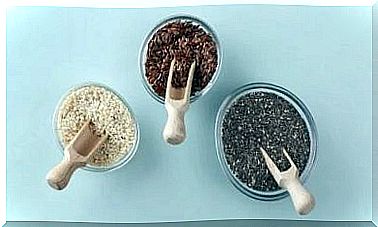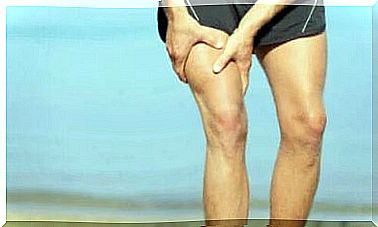How To Detect Gluten Intolerance

Celiac disease is a disease caused by gluten intolerance. It affects about 1 in 100 people worldwide. In some cases, some individuals experience similar symptoms, but tests show that they do not suffer from this condition. How do you detect gluten intolerance?
In the face of this challenge, health experts use the term “non-celiac sensitivity to gluten”. Although there is no medical analysis to detect this problem, many people claim that, as in the case of celiac disease, the problem can be controlled by adopting a gluten-free diet.
Many people who face this problem take immediate action without consulting a doctor and adopt a gluten-free diet to relieve unpleasant symptoms. But it is very important to get a correct diagnosis. This type of diet is not very easy to follow and it is better to have the supervision of a specialist to prevent nutritional imbalances.
As with any other condition, celiac disease cannot be detected if you do not know its symptoms. That is why it is important to know how to detect gluten intolerance.
How do you detect gluten intolerance?

In 2009, the National Institute for Health and Service Excellence (NICE) published a guide called “Recognition and testing of celiac disease”. It was performed by a group of gastroenterologists, dietitians, nutritionists, immunologists and patients.
In this guide, doctors are advised to give patients the opportunity to undergo a blood test as a first step in diagnosing celiac disease. This test is performed when a family member or patient has one of the following health problems:
- Autoimmune thyroiditis
- Herpetiform dermatitis
- Irritable bowel syndrome
- Type 1 diabetes
It is also good to have these tests if you experience any of the following symptoms:
- Frequent bloating and intestinal gas
- Irritable bowel syndrome or acid reflux
- Nausea and regular vomiting
- Chronic constipation or diarrhea
- Delayed development (in children)
- Sudden or unexpected weight loss
- Migraines or headaches
- Joint pain
- Prolonged fatigue
- Depression or anxiety
- Chronic eczema or acne
- Unexplained anemia caused by iron deficiency or any other type of anemia
This blood test should be performed by a specialist and confirmed with an intestinal biopsy.
Other alternative methods of diagnosis should be avoided, as celiac disease and gluten sensitivity involve other important changes in health that need to be properly controlled, in addition to dietary changes and the exclusion of gluten-containing foods.
Now that you know how to detect gluten intolerance, let’s see what you can do to manage the situation.
What to do if you are sensitive to gluten

If reading the list of symptoms you notice that you also face them very often or sporadically, it is advisable to go to the doctor first, before drawing your own conclusions.
We recommend that you follow a gluten-free diet for 60 consecutive days, which will help you figure out if your symptoms have improved. The inability to eliminate gluten from the diet is a clear sign of addiction, which will need to be treated with the help of a nutritionist.
The cereals that contain gluten are the following:
- Wheat
- Rye
- Barley
- spelled
- Wheat Khorasan
- Oat
- triticale
Gluten-free cereals:
- Quinoa
- Buckwheat
- Sorghum seeds
- Rice

When buying packaged products, you should read the labels carefully. It often happens that they contain smaller or larger amounts of gluten.
These include:
- Processed foods
- Salad dressings and sauces
- Foods with a lot of ingredients
- Ready meals
- Sweets and bread
After the recommended period for following the gluten-free diet, it is good to go to the doctor again to analyze possible changes in the body and the evolution of symptoms.
If you have celiac disease or gluten intolerance, this diet will work wonders for you. It is probably necessary to adopt it permanently so that the discomfort created by these problems does not diminish your quality of life.
After receiving the diagnosis from your doctor, it is important to change certain habits to make sure that gluten is completely eliminated from your diet.









